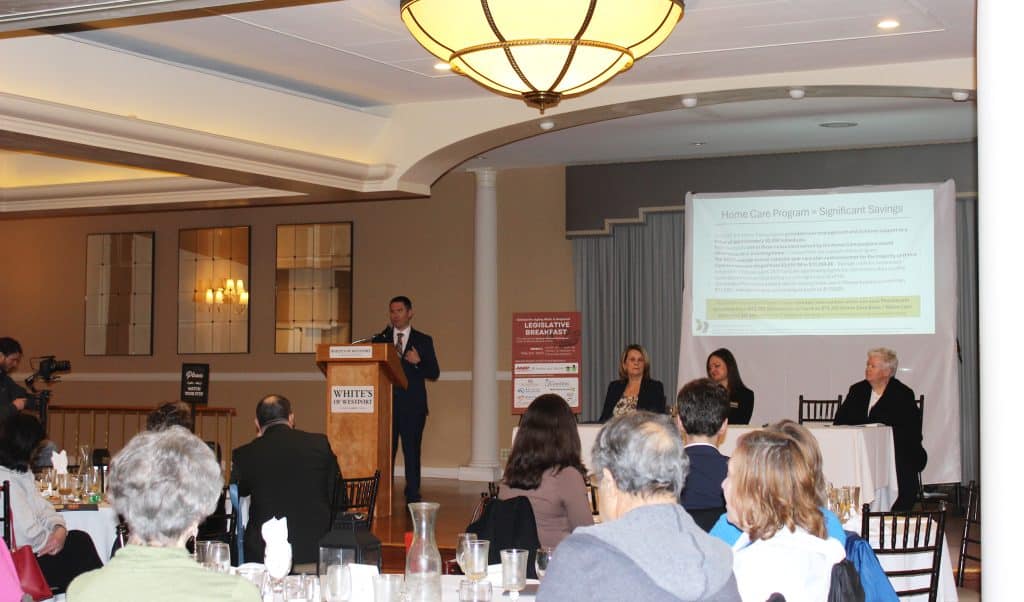
Congressman William Keating returned to Massachusetts in time to shake up the audience at a regional legislative breakfast in Westport last month, offering people “the good, the bad, and the ugly” of recent debates and decisions in Congress.
Keating offered opening remarks at the March 14 event held by a collaboration of eight organizations including aging services agencies representing the New Bedford, Fall River, Cape Cod and Plymouth areas. The breakfast was intended to call attention to concerns about support for aging services.
Keating had few positive words for the funding of government bill that was being discussed in the Senate as he spoke and was passed by the Senate the next day.
“This is a bill that is unprecedented in its nature,” he said. “That would fund government to the end of the fiscal year but do more than that.”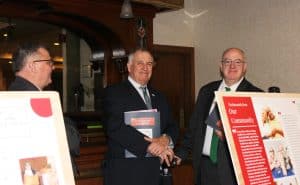
Keating criticized the bill’s wording as undercutting the courts’ ability to be a checks-and-balance on government and limiting Congress’ effect on how the money they appropriate for specific purposes is used.
He saved his strongest criticism for the bill’s impact on Medicaid and Social Security, telling the mostly older audience that Medicaid cuts will hit children and seniors hardest.
“I have over 200,000 people receiving Medicaid in my district alone and this will have devastating effects on them,” Keating said. “It’s going to have effects directly on services – things will be cut. It’s going to have a direct effect on our hospital care.”
“A lot of that Medicaid money went to home healthcare services,” he continued. “That’s what’s been funding in part, or in full, many of the home health care services, the food services for a lot of people, the respite care for a lot of people. Medicaid is all intertwined in that, and this is going to be a very serious problem.”
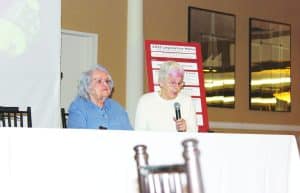 On Social Security, Keating expressed concern about Elon Musk and his team’s access to people’s private information and how it might be commercialized. He said his office gets the most calls from people seeking help on veterans and social security issues and worries that with personnel cuts, the ending of the 800-number, and the closing of field offices, all of which he said is being planned or done, barriers will be created preventing people from getting the help they need.
On Social Security, Keating expressed concern about Elon Musk and his team’s access to people’s private information and how it might be commercialized. He said his office gets the most calls from people seeking help on veterans and social security issues and worries that with personnel cuts, the ending of the 800-number, and the closing of field offices, all of which he said is being planned or done, barriers will be created preventing people from getting the help they need.
“They’re going to throw delays into the system and make people go through more to access benefits,” he said. “They’re going to try to close field offices for Social Security and make it less accessible. Their plan is to already stop the 800-number so that when you’re going to try to find out what benefits you have, if you receive a notification, … or you have to talk to someone about benefits that you’re paying on your own dime now and those of us that make calls, those can be hours and hours and hours of waiting.”
Keating wasn’t without some good news in his remarks. He praised the passing of the Social Security Fairness Act which repealed laws that reduced social security benefits of some public workers. He also highlighted the Inflation Reduction Act which, among other actions, reduced a handful of prescription drug costs, including insulin, and creates a $2000-per-year cap on out-of-pocket expenses.
A full line-up of regional and statewide professionals followed Keating’s opening remarks giving the audience insight into effective programs that are threatened by funding shortages, and asking for support from those present either through advocacy efforts or sharing their personal stories about the impact these programs are having.
One such program is Hospital to Home, a grant-funded program that connects hospital systems and aging services access points to support patients in returning home when they no longer need treatment. The program also helps hospitals free up beds they need.
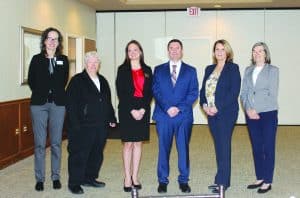 “It’s incredibly complicated and complex and fragmented to try to figure out how to get somebody from an institutional setting, hospital or nursing home back home,” said Betsey Crimmins, executive director of Mass Aging Access, an advocacy organization working to codify Hospitals to Home into legislation. “Who do you call when you need services? Who’s going to bring that in, to coordinate that? So having an ASAP person directly working with discharge planners in these hospitals has been an invaluable experience because that is what ASAPs do.”
“It’s incredibly complicated and complex and fragmented to try to figure out how to get somebody from an institutional setting, hospital or nursing home back home,” said Betsey Crimmins, executive director of Mass Aging Access, an advocacy organization working to codify Hospitals to Home into legislation. “Who do you call when you need services? Who’s going to bring that in, to coordinate that? So having an ASAP person directly working with discharge planners in these hospitals has been an invaluable experience because that is what ASAPs do.”
There is a strong effort to extend the program, but as of press time, it had not been extended beyond its March 31 end date.
Jennifer Benson, state director for AARP Massachusetts, spoke about the burden being carried by unpaid family caregivers in Massachusetts and expressed support for the Caring for Caregivers Act, which would account for 30% of caregiving costs at a maximum credit amount of $5000.
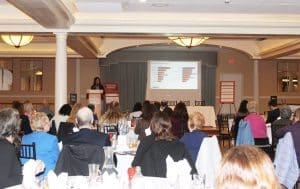 “This would help working family caregivers offset the cost of some of their caregiving expenses, such as home care, aides, Adult Day services, home modifications, assistive technology, respite care – desperately needed for family caregivers – and more,” she said.
“This would help working family caregivers offset the cost of some of their caregiving expenses, such as home care, aides, Adult Day services, home modifications, assistive technology, respite care – desperately needed for family caregivers – and more,” she said.
Also addressed at the event were state funding concerns for food assistance programs such as SNAP, the Supplemental Nutrition Assistance Program and the Healthy Incentives Program, known as HIP, and the impact of budget deficits for home care and senior nutrition.

Recent Comments